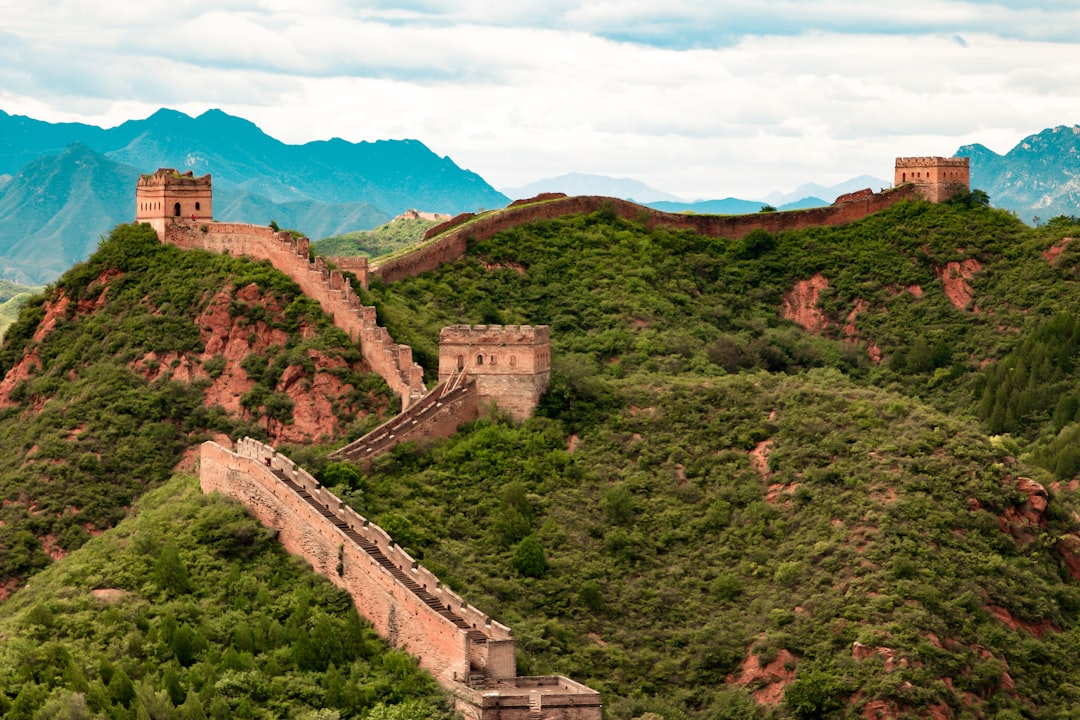A comprehensive guide to traveling to China post-COVID-19, including important travel tips, visa requirements, safety tips, cultural etiquette, must-visit destinations, budgeting tips, challenges, and safety information for US citizens.

Introduction to Traveling to China Post-COVID-19
The slow return of foreign tourists to China post-COVID-19 has been a significant development in the travel industry, with increased inbound flight ticket orders and hotel bookings surpassing 2019 levels. This resurgence not only reflects the country’s appeal as a tourist destination but also highlights the gradual recovery of the tourism sector in China. For instance, popular attractions like the Terracotta Army in Xi’an have started to welcome visitors again, showcasing the historical and cultural wonders that await travelers. Despite the challenges posed by the pandemic, the positive trend in tourism signals a hopeful outlook for travelers looking to explore the diverse landscapes and traditions of China.
As China reopens its borders to international visitors, safety measures and hygiene protocols have been strengthened to ensure the well-being of tourists. Major cities like Guangzhou and Chengdu have implemented stringent cleanliness standards in hotels and tourist sites, providing a safe environment for travelers to enjoy their stay. By prioritizing health and safety precautions, China aims to rebuild confidence among tourists and revitalize the travel industry in the post-pandemic era, emphasizing the country’s commitment to welcoming visitors from around the world.
Moreover, the resumption of cultural events and festivals across China underscores the nation’s rich heritage and vibrant traditions. Events like the Lantern Festival in Beijing and the Dragon Boat Festival in Hangzhou offer unique insights into Chinese customs and celebrations, providing travelers with immersive cultural experiences. By participating in these festivities, visitors can deepen their understanding of China’s diverse cultural tapestry and create lasting memories of their journey through the Middle Kingdom.
Important Travel Tips for Visiting China
When embarking on a trip to China, it’s essential to equip yourself with important travel tips to enhance your experience in the country. Learning basic Chinese phrases before your departure can significantly facilitate communication with locals and enrich your interactions during the trip. For example, mastering simple greetings like “你好” (nǐ hǎo) or “谢谢” (xièxiè) can demonstrate your respect for the local culture and create a positive connection with the people you meet along the way.
In addition to language preparation, having a physical map or offline maps on your mobile device is advisable, especially in remote areas where GPS services may be unreliable. By having a map handy, you can navigate through the labyrinthine streets of cities like Chengdu or Xi’an with confidence and independence, discovering hidden gems and local delights off the beaten path. Furthermore, being prepared for the prevalence of squat toilets in many public restrooms in China is crucial for a seamless restroom experience. Familiarizing yourself with this cultural practice can prevent any discomfort or confusion when using facilities in different parts of the country.
 Visa Requirements and Travel Restrictions in China
Visa Requirements and Travel Restrictions in China
Understanding the visa requirements and travel restrictions in China is vital for a smooth and hassle-free journey. Foreign travelers holding tourist visas must adhere to entry-exit procedures and comply with Chinese laws and customs throughout their stay [4]. By following these regulations, tourists not only ensure legal compliance but also demonstrate respect for the host country’s norms and values, fostering positive cultural exchanges.
Health quarantine inspections are mandatory for all inbound passengers to China, aiming to safeguard public health by screening for various communicable diseases like yellow fever, AIDS, and tuberculosis. These stringent health measures play a crucial role in preventing the spread of infectious diseases and maintaining the well-being of both residents and visitors. Moreover, travelers should be aware of the strict animal and plant quarantine regulations in China, which aim to protect the country’s biodiversity by restricting the entry of pathogens, pests, and animal remains. By respecting these regulations, tourists contribute to the preservation of China’s natural ecosystem and agricultural resources.
To illustrate, a traveler arriving in China with a tourist visa should be prepared to undergo health screenings and respect the animal and plant quarantine regulations. By understanding and following these requirements, visitors can ensure a seamless travel experience and demonstrate respect for the country’s laws and customs.
Safety Tips for Travelers in China
Ensuring safety while traveling in China is paramount, and being aware of key safety tips can help travelers navigate the country with confidence. One crucial safety measure is to register with the U.S. Embassy in China to receive important safety information and updates during your trip. By staying connected with the embassy, travelers can stay informed about local conditions, emergency procedures, and any potential risks that may arise during their stay in China.
In addition to embassy registration, avoiding discussions on sensitive political topics or participating in protests is advisable to prevent potential conflicts or misunderstandings. Maintaining a neutral stance on political issues and respecting local sensitivities can help travelers steer clear of contentious situations and ensure a harmonious travel experience. Furthermore, keeping copies of essential documents like passports, visas, and travel itineraries in a secure location is essential for quick access in case of emergencies or unexpected circumstances. By safeguarding important paperwork, travelers can expedite assistance and minimize disruptions to their travel plans.
For example, a traveler in China can enhance their safety by registering with the U.S. Embassy, refraining from engaging in political discussions, and securing copies of vital documents. By following these safety tips, visitors can enjoy a secure and worry-free journey through the diverse landscapes and cultural treasures of China.
Cultural Etiquette and Customs to Be Aware of in China
Navigating the cultural norms and customs of China is key to fostering positive interactions and showing respect for the local traditions. In addition to the well-known practice of not tipping in China, understanding the significance of gift-giving is essential for meaningful exchanges with locals. Presenting and receiving gifts with both hands is a customary gesture that conveys respect and appreciation in Chinese culture. When visiting a Chinese household or attending social gatherings, offering a small gift like tea or fresh fruit can leave a lasting impression and strengthen interpersonal connections.
Furthermore, observing personal space boundaries and refraining from public displays of affection are important cultural etiquettes in China. Unlike in some Western societies, excessive physical contact in public places is generally frowned upon in China. Couples should avoid overt displays of affection like kissing or hugging in public to adhere to local customs and norms. By respecting these cultural sensitivities, travelers can navigate social interactions with grace and consideration, fostering positive encounters with the local community.
 Must-Visit Destinations in China
Must-Visit Destinations in China
Exploring the diverse landscapes and historical sites of China offers travelers a treasure trove of must-visit destinations. The majestic Yangtze River, renowned for its breathtaking scenery and cultural significance, is a highlight for nature enthusiasts and history buffs alike. Cruising along the Yangtze River provides a unique perspective on China’s natural beauty and rich heritage, with opportunities to witness ancient landmarks and traditional villages along the way.
In the vibrant city of Shanghai, travelers can immerse themselves in a blend of modernity and tradition, experiencing iconic landmarks like the Bund and Yu Garden. The juxtaposition of futuristic skyscrapers and classical Chinese gardens in Shanghai encapsulates the city’s dynamic character and cosmopolitan charm, offering a glimpse into the country’s rapid development and cultural heritage. Moreover, exploring the picturesque karst landscape of Guilin and the nearby Longji Rice Terraces is a delight for nature lovers seeking serenity and natural beauty. The breathtaking vistas of limestone peaks and terraced rice fields in Guilin showcase the harmonious relationship between humans and nature, inviting visitors to unwind and appreciate the wonders of the natural world.
Budgeting Tips for Traveling in China
Traveling in China on a budget is achievable with strategic planning and cost-saving tips. Opting for public transportation such as buses and subways is not only economical but also a convenient way to navigate China’s bustling cities and scenic regions. For instance, exploring Beijing or Chengdu by subway allows travelers to access major attractions and local neighborhoods at a fraction of the cost of private transportation, providing a budget-friendly alternative for sightseeing.
Additionally, indulging in China’s vibrant street food scene and dining at local eateries offers a taste of authentic Chinese cuisine at affordable prices. Sampling regional specialties like dumplings, noodles, and barbecue skewers from street vendors immerses travelers in the culinary diversity of China, creating memorable gastronomic experiences without straining the budget. Bargaining is a common practice in markets and small shops across China, allowing visitors to negotiate prices for souvenirs and goods. By honing their bargaining skills and embracing the art of haggling, travelers can secure unique keepsakes and gifts while staying within their budget limits.
 Challenges of Visiting China
Challenges of Visiting China
Traveling in China presents certain challenges that visitors should be prepared to navigate for a smoother and more fulfilling experience. Language barriers can pose difficulties for English-speaking travelers, particularly in rural areas or less touristy regions where English proficiency may be limited. To overcome this challenge, utilizing translation apps or carrying a pocket dictionary can help bridge communication gaps and facilitate interactions with locals, fostering meaningful connections and cultural exchanges.
Moreover, pollution levels in major Chinese cities like Beijing and Shanghai can affect individuals sensitive to poor air quality, posing health risks for travelers. Taking precautions such as wearing a face mask and monitoring air quality indexes can mitigate the impact of pollution on respiratory health and ensure a more comfortable stay in urban areas. Additionally, managing crowds and long queues at popular tourist sites is a common challenge for travelers in China, especially during peak seasons. Planning visits during off-peak hours or exploring lesser-known attractions can offer a more tranquil and intimate travel experience, allowing visitors to appreciate the beauty of China’s landmarks without the hustle and bustle of large crowds.
Furthermore, adapting to cultural differences and social norms may present challenges for foreign visitors exploring China’s diverse regions. Understanding and respecting traditional Chinese etiquette, such as table manners, gift-giving customs, and social protocols, can enhance cultural interactions and foster mutual understanding. By embracing these challenges as opportunities for cultural learning and personal growth, travelers can enrich their journey through China and create lasting memories of their adventures in the Middle Kingdom.
 Safety for US Citizens Traveling in China
Safety for US Citizens Traveling in China
Ensuring safety and security while traveling in China as a U.S. citizen is a priority, requiring awareness of potential risks and proactive measures to safeguard one’s well-being. Recent laws in China have raised concerns about the arbitrary detainment of foreigners, including Americans, under certain circumstances. To mitigate such risks, it is advisable for U.S. citizens to refrain from engaging in activities that may be perceived as illegal or provocative, respecting local laws and regulations to avoid legal complications.
Staying informed about the current political climate and heeding travel advisories issued by the U.S. government can enhance safety awareness and preparedness for travelers in China. By monitoring updates on potential risks, security threats, or civil unrest, visitors can adjust their travel plans accordingly and make informed decisions to ensure their safety and well-being. In case of emergencies or unforeseen events, contacting the U.S. Embassy in China for assistance and guidance is a valuable resource for U.S. citizens seeking support and intervention during their travels. By maintaining open communication with diplomatic authorities and following safety protocols, travelers can navigate China with confidence and peace of mind, focusing on the exploration of the country’s rich cultural heritage and scenic wonders.
Navigating Regulations and Customs in China
Understanding and respecting the regulations and customs of China is essential for foreign travelers seeking to immerse themselves in the local culture and traditions. Observing practices like removing shoes before entering homes or certain establishments is a customary etiquette in Chinese households, signifying respect for cleanliness and cultural norms. By adopting this practice, visitors demonstrate their awareness of local customs and show consideration for the living spaces of their hosts.
Moreover, being mindful of public displays of affection and refraining from excessive physical contact in public spaces aligns with Chinese social norms and expectations. Couples should exercise discretion when showing affection in public to avoid causing discomfort or offense to local residents. Additionally, adhering to photography restrictions at certain sites and attractions in China is important to preserve the integrity of cultural heritage and protect sensitive areas from overexposure or damage. By respecting signage and guidelines regarding photography, travelers contribute to the conservation efforts of historical landmarks and natural landscapes, ensuring their preservation for future generations to enjoy.
To exemplify, a traveler in China can navigate customs and regulations by removing shoes before entering a local home, refraining from public displays of affection, and adhering to photography guidelines at heritage sites. By embracing these cultural practices and respecting local sensitivities, visitors can engage with the rich tapestry of Chinese traditions and create meaningful connections with the communities they encounter.
